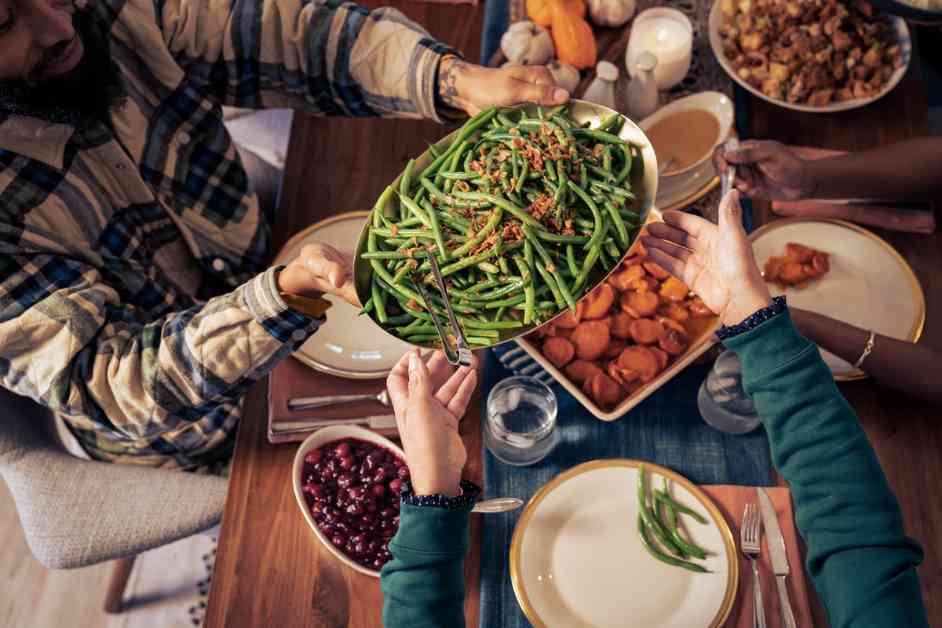The holiday season is a time for joy, celebration, and indulgence in delicious foods. However, many people experience anxiety and guilt surrounding holiday meals, as highlighted in a recent survey by Orlando Health. The pressure to overindulge during special occasions can lead to feelings of uncertainty and a lack of control when it comes to food choices.
Sara Riehm, a registered dietitian at Orlando Health, emphasizes the importance of creating a balanced approach to holiday eating. Rather than focusing on restriction or cutting out certain foods, she encourages finding a middle ground that allows for enjoyment while also keeping health goals in mind.
It’s essential to prioritize health without falling into the trap of dieting misconceptions that can be harmful. Stress, particularly during the holiday season, can lead to weight gain due to increased cortisol levels in the body. Instead of fixating on food, Riehm advises focusing on the true meaning of the holidays: gathering, gratitude, and celebrating loved ones.
When it comes to navigating holiday meals, Riehm recommends incorporating nutrient-dense foods like vegetables while still leaving room for indulgent treats. Adding a bit of movement, such as a short walk after eating, can also help improve insulin sensitivity. By prioritizing certain foods and practicing moderation, it’s possible to enjoy holiday feasts without derailing progress towards health goals.
In terms of preparing for holiday meals, Riehm suggests adopting a cycle of “plan, act, reflect” to avoid overindulging or reverting to unhealthy habits. Skipping meals to “save calories” before a big dinner is not recommended, as it can lead to binge-eating and disrupt balanced nutrition. Instead, maintaining regular meals and snacks throughout the day can help prevent overeating.
After the holidays, the idea of needing a “detox” or “cleanse” is discouraged by Riehm. Engaging in compensatory behaviors can be harmful and may contribute to disordered eating patterns. It’s essential to acknowledge any less-than-ideal decisions and move forward without dwelling on them. By reframing the relationship with food to be more accepting and flexible, individuals can foster a healthier mindset towards eating.
Riehm emphasizes the importance of breaking free from diet culture and viewing food neutrally. By categorizing foods into “always,” “sometimes,” and “rarely” options, individuals can make informed choices while allowing for occasional treats. During the holidays, it’s about finding a balance between enjoying festive foods and prioritizing health.
In conclusion, holiday eating should be a time of celebration and enjoyment, not anxiety and guilt. By approaching meals with mindfulness, moderation, and a focus on overall well-being, it’s possible to savor the flavors of the season without compromising health goals. Remember, it’s about creating a sustainable and balanced approach to eating that allows for both indulgence and nourishment.




